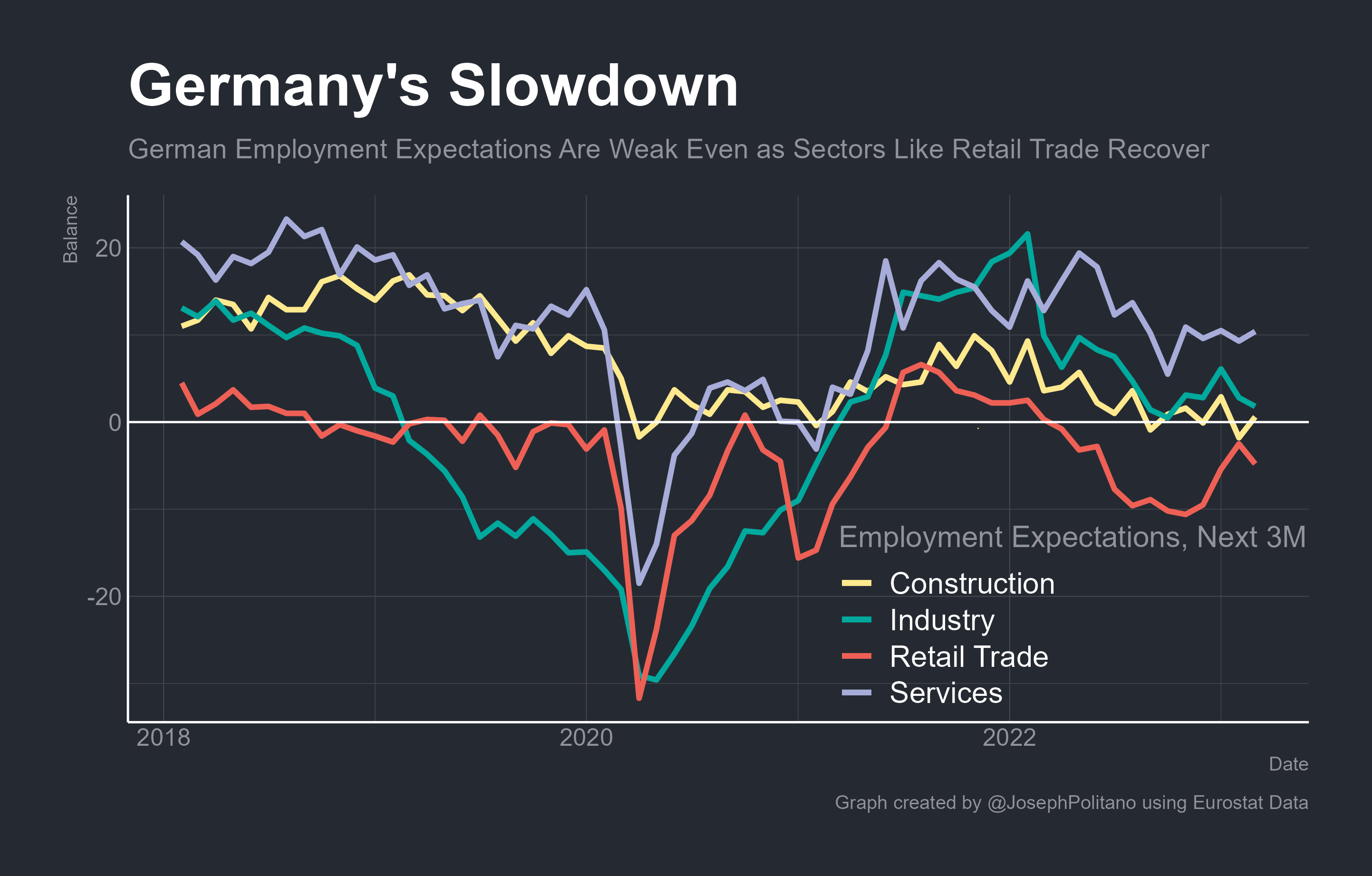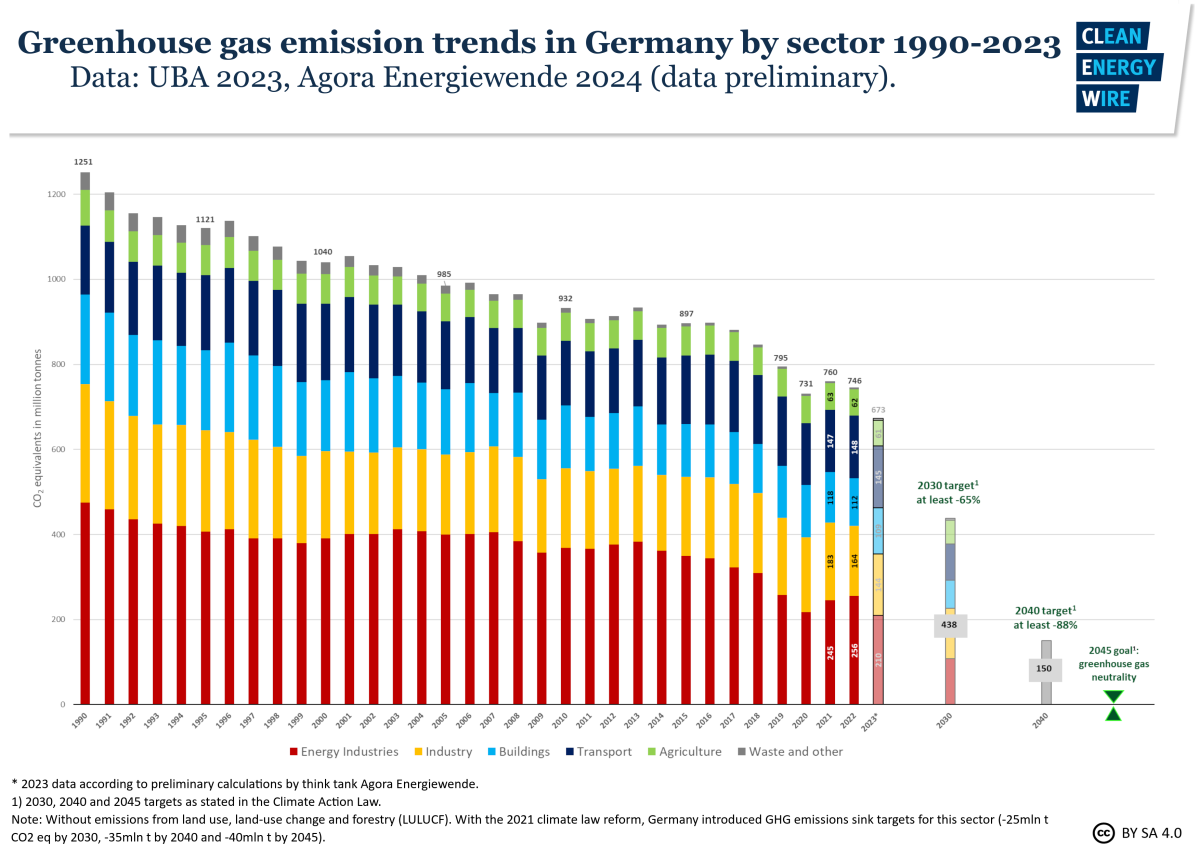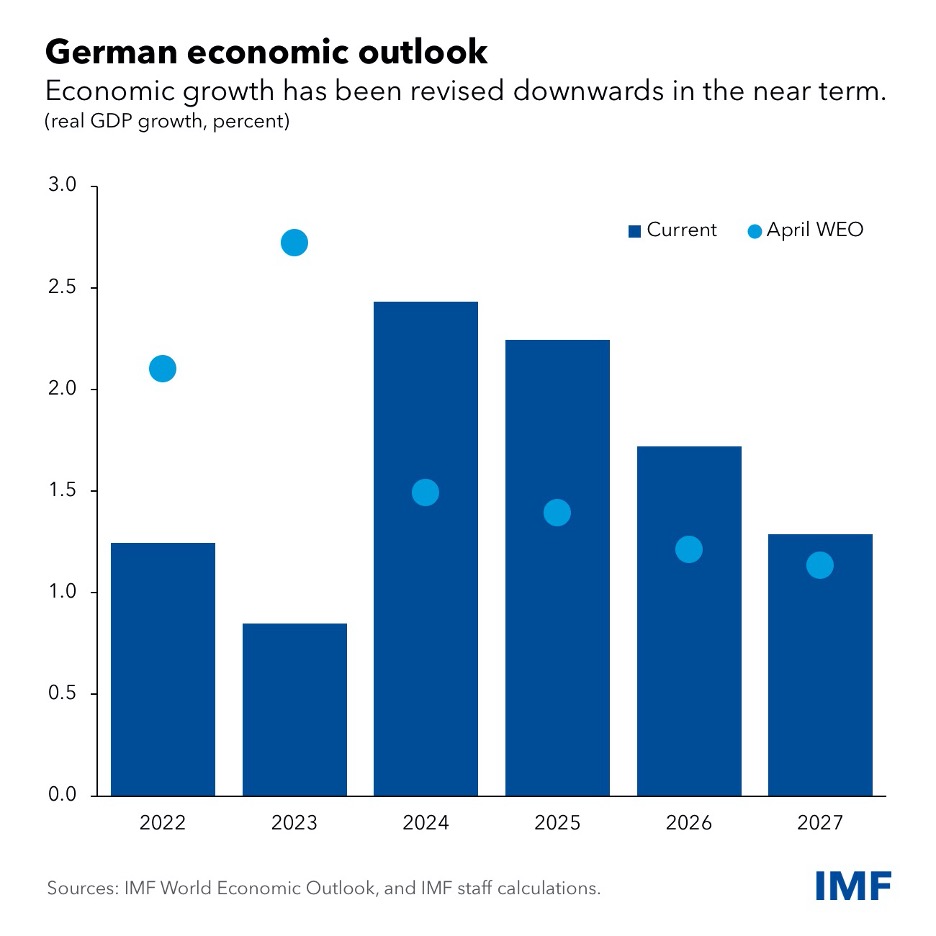Antwort Is the German economy weak? Weitere Antworten – Is Germany’s economy struggling
Europe's biggest economy shrank last year for the first time since the onset of the Covid-19 pandemic. And the outlook isn't much brighter: the International Monetary Fund predicts that Germany will be the slowest-growing major economy in 2024, eking out an increase of just 0.5%.Germany is struggling. It was the only G7 economy to shrink last year and is set to be the group's slowest-growing economy again this year, according to our latest projections. Some pundits say Germany's economic model is irreparably broken.Germany is on the brink of recession as manufacturing and property crises engulf the eurozone's biggest economy. The German economy shrank by 0.3pc in the final quarter of 2023, according to the Federal Statistical Office, as investment in construction and machinery tumbled.

Is Germany at risk of a recession : "There is still no recovery for the German economy," the Bundesbank said. "Output could decline again slightly in the first quarter of 2024. With the second consecutive decline in economic output, the German economy would be in a technical recession."
Will German economy recover in 2024
Real gross domestic product will probably decline again slightly in the first quarter of 2024, according to the March Monthly Report. The German economy continues to experience headwinds from various directions.
What’s going on in Germany in 2024 : In 2024, Berlin will be in focus throughout Europe: The German capital is going to celebrate two charismatic events. In summer, the Olympic Stadium will host five matches and the final of the UEFA European Championship 2024.
Germany's economy has consistently had the largest economy in Europe since 1980, even before the reunification of West and East Germany. The United Kingdom, by contrast, has had mixed fortunes during the same time period and had a smaller economy than Italy in the late 1980s.

Germany's economic weakness, highlighted by the recession in 2023 and the uncertain outlook for the current year, has non-cyclical characteristics that have been amplified by the recent dramatic crises of both a strategic and macroeconomic nature.
Is Germany now the sick man of Europe
After nearly two decades, claims that Germany is the “sick man of Europe” are making a comeback. In the first six months of 2023, around half of Germany's publicly-listed firms destroyed value, a greater share than in other EU countries, heightening the need for reform.German Output Has Trended Downward Since 2017 Peak. Alongside global volatility, political paralysis in Berlin is intensifying long-standing domestic issues such as creaking infrastructure, an aging workforce and the snarl of red tape.The manufacturing sector, excluding construction, fell by a sharp 2%, led by lower production in the energy supply sector. The fourth quarter recorded a similar 0.3% drop compared with the July-September period.

Real gross domestic product will probably decline again slightly in the first quarter of 2024, according to the March Monthly Report. The German economy continues to experience headwinds from various directions.
Is Germany growing or declining : Germany's economic growth is slowing because of a wide range of factors, mainly dampened house-building and construction activity, as well as reduced industrial demand from abroad.
What is the future of the German economy : The growth forecast for the current year has thus been significantly lowered by 0.7 percentage points compared to the ifo Economic Forecast Winter 2023 and raised slightly by 0.2 percentage points for 2025. Contrary to expectations, the German economy is in recession in the winter half-year 2023/24.
What is the economic outlook for Germany in 2025
KfW Research expects German GDP to grow by a moderate 0.3% in all of 2024 (previous forecast: +0.6%). GDP growth is likely to accelerate to 1.2% in 2025 (initial forecast).

What are the key results of the Structural Data Forecast ∎ On average, the German GDP will rise by 1.14% per year over the period to 2030.Germany is rich in timber, lignite, potash, and salt. Some minor sources of natural gas are being exploited in the state of Lower Saxony. Until German reunification, the German Democratic Republic mined for uranium in the Ore Mountains (see also: SAG/SDAG Wismut).
What part of Europe has the weakest economy : Ukraine has the lowest Gross National Income (GNI) per capita among these nations, standing at a concerning $3.5K. Moldova follows closely, with a GNI per capita of $4.6K, while Albania, North Macedonia, and Bosnia and Herzegovina each have a GNI per capita in the $5K range ($5.2K, $5.7K, $6.1K, respectively).


![csm_2405-bauerfeind-produktkategoriesseiten-bandagen-ellenbogenbandage-2560x1400_88-1_f91f66009c[1]](https://www.nakajimamegumi.com/wp-content/uploads/2024/06/csm_2405-bauerfeind-produktkategoriesseiten-bandagen-ellenbogenbandage-2560x1400_88-1_f91f66009c1-1024x521-65x65.jpg)
![Ischiasschmerzen[1]](https://www.nakajimamegumi.com/wp-content/uploads/2024/06/Ischiasschmerzen1-1024x640-65x65.jpg)
![csm_blogbeitrag_autoimmunerkrankung_d307ac8b72[1]](https://www.nakajimamegumi.com/wp-content/uploads/2024/06/csm_blogbeitrag_autoimmunerkrankung_d307ac8b721-1024x576-65x65.jpeg)